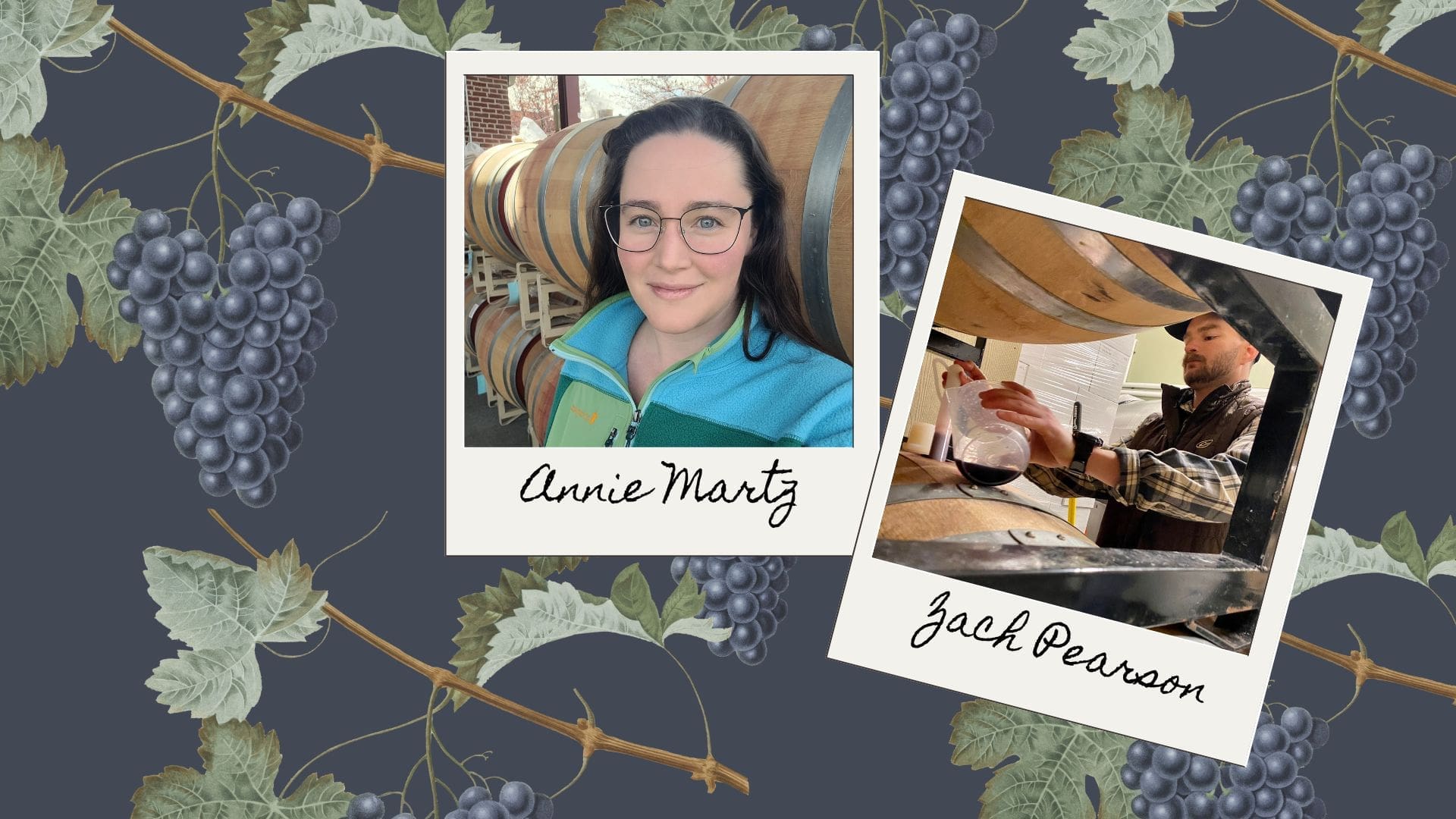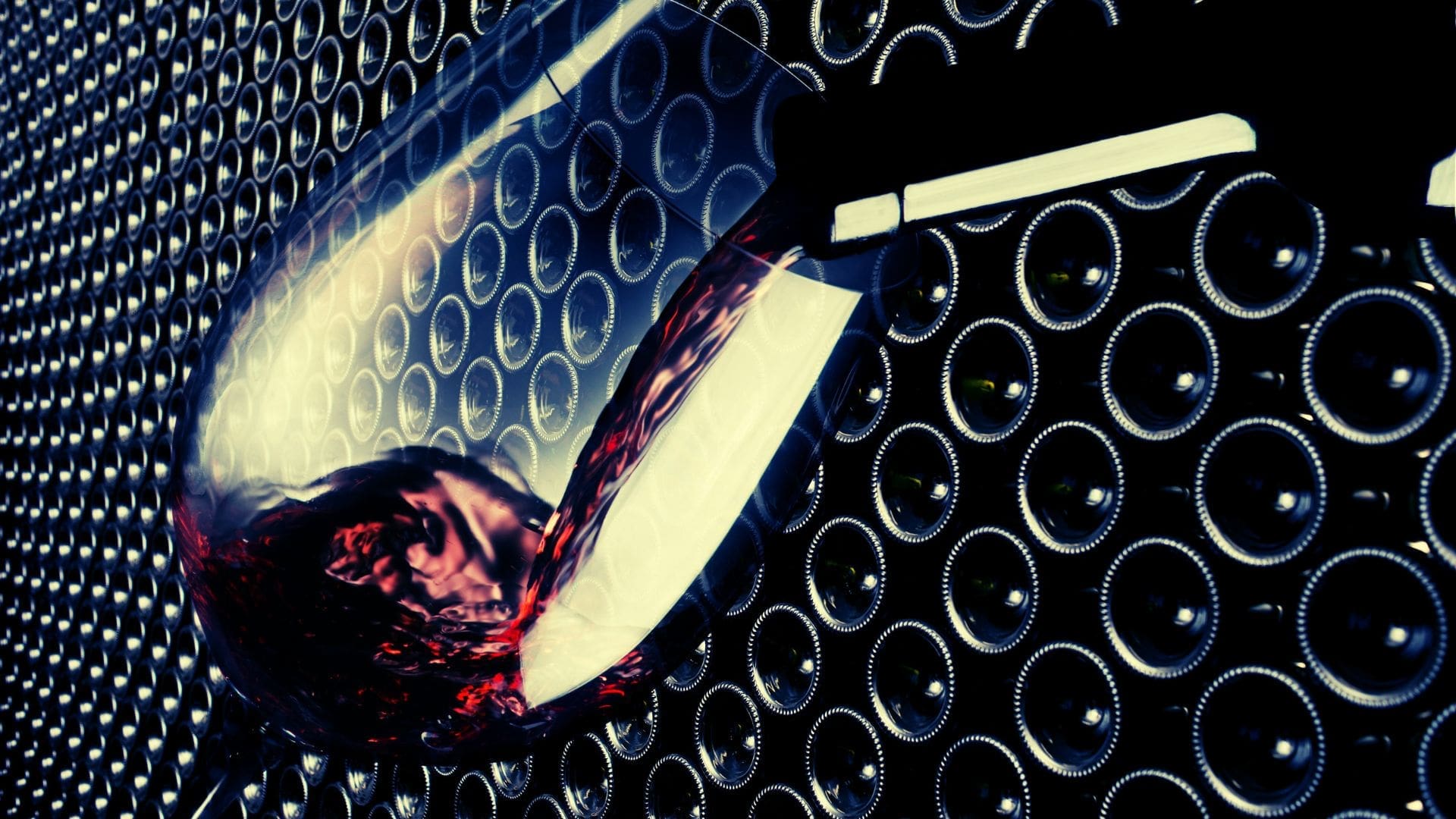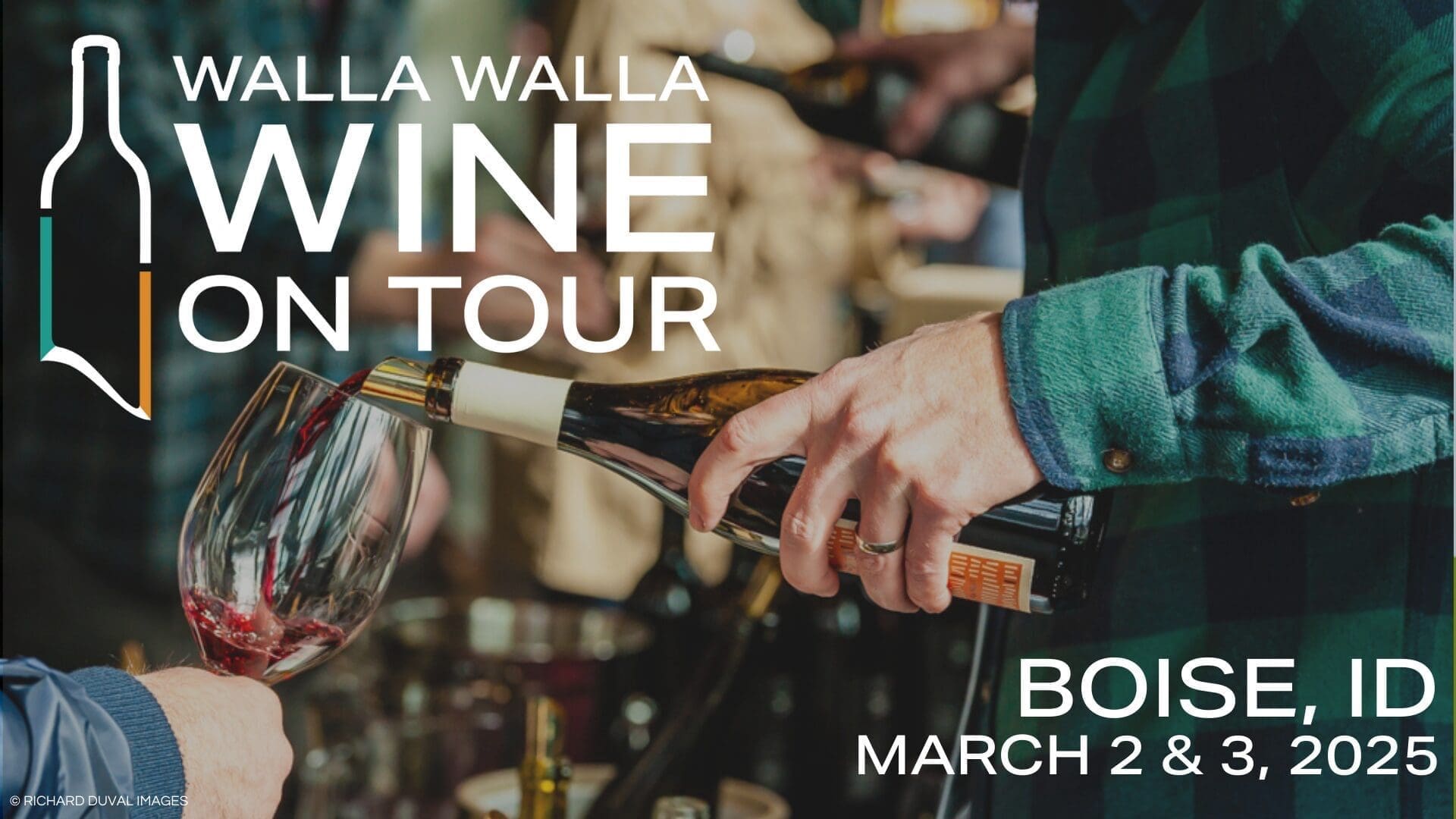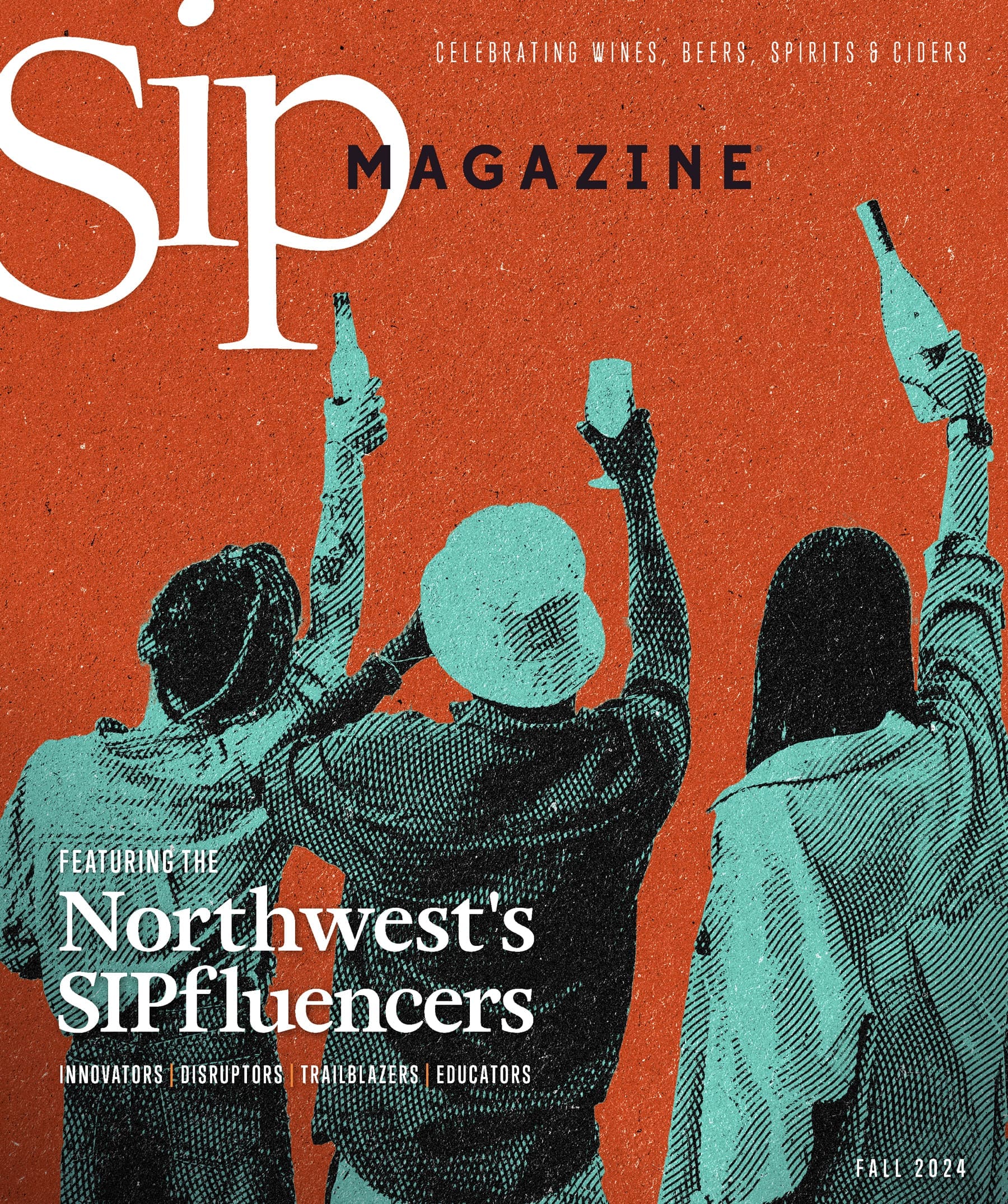
When Tenor wines spun off from Woodinville based Matthews Estate three years ago, it was like a sequel to “Back to the Future.” Winemaker Aryn Morell looked back to the winemaking traditions of the Old World as he set the course for Tenor. Morell envisioned elegant and balanced wines, reminiscent of traditional French regions of Bordeaux, Burgundy, Rhone Valley and Loire Valley. “What we intend for wines is to make them more classic in style,” Morell says. He was sampling the 2007 vintage in-barrel at Matthews Estate sometime during the fall of 2008, when he realized what he had in-barrel was unlike any of the other wines previously made under the Matthews brand. The blend would become the first release under the Tenor label, a Bordeaux-style blend 1:1 (pronounced One of One) from the 2007 vintage.
Morell was inspired. He recalls thinking, ‘Let’s create a new flagship wine. Maybe that flagship wine should be a new winery.’
Since then Tenor has focused on single-varietal wines, promising to make only the varietals that are appropriate for each vintage.
“We have a couple of single varieties that would be really good,” Morell says, thinking of the 2007 vintage as it was aging. “You have a standard of what you want to release and what you don’t want to release. Let’s think about what we can do.” And, thus, the single-varietal Tenor wines were created.
 The first releases included the 2007 Malbec and the 2007 Merlot. Morell eschewed the noble Cabernet Sauvignon during the first vintage of Tenor.
The first releases included the 2007 Malbec and the 2007 Merlot. Morell eschewed the noble Cabernet Sauvignon during the first vintage of Tenor.
For the current red wine vintage, 2008, Morell crafted a Merlot, and for the first time a Syrah and a Cabernet Sauvignon. He skipped making a Malbec, choosing instead to blend it into the 2008 1:1. Current Tenor releases also include a 2010 Sauvignon Blanc, a varietal that requires less aging than the red wines, and thus are released younger. Look for the 2010 Chardonnay in 2012.All Tenor wines are made 100 percent with fruit sourced from sites all across Washington state. Morell blends the same varietal relying on terroir from each site to craft his wines. With a deft touch for blending, Morell coaxes power from one vineyard and balances it with elegance from another, berry fruit from one site against spice from another.
“There’s a bit of regality and sophistication on the nose for the wines we choose for Tenor,” Morell says. “They have to have a roundness and purity. Not just the aromatics but how the aromatics show to you, the palate, the refinement of the palate and the length.
“We want to maintain the integrity and purity of the wine.”
Maintaining that integrity and purity begins in the vineyards. In another nod to the Old World, Morell is intimately involved in growing grapes. In the Old World, many of the best wineries grow their own fruit on their estate, giving them full control of vineyard management. In the Northwest, many of the producers, including Morell, buy most of their fruit from growers. But Morell visits all his vineyard blocks as regularly as weekly, giving him control as if he was growing fruit on his own estate.
 Morell is engaged with vineyard owners and managers as early as the pruning process during the winter before the ensuing harvest. “We work only with vineyards that give us full control,” Morell says. “We want to work with vineyards that will allow us the maximum influence possible. We can’t work together if we can’t find that balance.” Morell’s commitment to quality control at every step and the extra work it creates for vineyards means Tenor pays a premium for their fruit. His rigor in choosing vineyard blocks and ultimately individual barrels also translates to very limited production, a total production of 659 for the current releases.
Morell is engaged with vineyard owners and managers as early as the pruning process during the winter before the ensuing harvest. “We work only with vineyards that give us full control,” Morell says. “We want to work with vineyards that will allow us the maximum influence possible. We can’t work together if we can’t find that balance.” Morell’s commitment to quality control at every step and the extra work it creates for vineyards means Tenor pays a premium for their fruit. His rigor in choosing vineyard blocks and ultimately individual barrels also translates to very limited production, a total production of 659 for the current releases.
Morell moved his family and the winemaking operation to Walla Walla this summer to be closer to his vineyard sources. The reduced commute to the vineyards has allowed him to spend more time with his family. But he has also been known to treat the vineyards as though they were his own flesh and blood.
“They are your kids,” Morell says of the vineyards he harvests. “The more you know them, the more you understand the silent details.” Considering his Old World style of winemaking, it is ironic that Morell honed his winemaking skills in Napa Valley, where he also met his wife. 
He worked at VA Filtration and D’Vine Intervention based in American Canyon, Calif., consulting with hundreds of wineries across the world. Morell says that experience has made him a better winemaker. He also worked at Golden State Vintners, Edgewood Estates in St. Helena and Silver Oak in Napa. “Fortunately, I had the chance to work at hundreds of places and learn from amazing winemakers,” he says. “In a lot of ways it’s unconventional, but it gave me a different perspective. You go somewhere else and you realize they do things differently. You can look at the system more objectively. You see far more things. You see the same thing done a hundred different ways.
“That’s inherently what great winemakers do. They take their experiences. They look at the good and the bad, and apply what they think is going to work.” Considering the perfect pitch of his wines, Morell has applied his lessons well.
BY CHRIS S. NISHIWAKI
To learn more about Tenor visit their tasting room at 16116 140th Place NE
Woodinville, WA 98072
Ph. 425.974.9515
or visit their website at www.tenorwines.com










